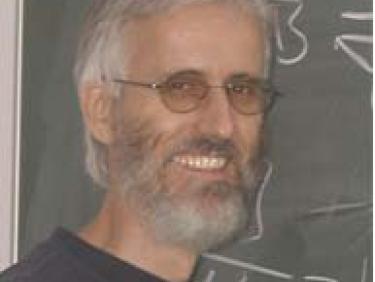Matthias Mayer Welcome to the Mayer lab!
Many protein folding processes in the cell, in particular in signal transduction cascades controlling cell homeostasis, cell cycle and apoptosis, are dependent on the assistance by molecular chaperones of the Hsp70 and Hsp90 families. Thereby dynamic high molecular weight complexes are formed between the substrate proteins and the chaperones together with a number of co-chaperones. On one hand, the substrates are thus kept in an inactive state, on the other hand, the interaction with the chaperones is essential for subsequent activation of the substrate through the signaling cascades.

Recent Research Highlights
Current Research
Many protein folding processes in the cell, in particular in signal transduction cascades controlling cell homeostasis, cell cycle and apoptosis, are dependent on the assistance by molecular chaperones of the Hsp70 and Hsp90 families. Thereby dynamic high molecular weight complexes are formed between the substrate proteins and the chaperones together with a number of co-chaperones. On one hand, the substrates are thus kept in an inactive state, on the other hand, the interaction with the chaperones is essential for subsequent activation of the substrate through the signaling cascades. The central question in this process is how Hsp70 and Hsp90 control the activity of their substrates; to which extent the chaperones influence the conformation of their substrates, how the chaperones prevent dimerization and nuclear localization and how they are able to modulate posttranslational modifications like phosphorylation.
To answer these questions we analyze the molecular mechanism of Hsp70 and Hsp90 chaperone systems. We investigate how the activity of the chaperones is regulated by co-chaperones and which conformational changes in chaperones and substrate proteins are necessary to reach the active state. For these studies we use biochemical and biophysical techniques including fluorescence spectroscopy, circular dichroism spectroscopy, surface plasmon resonance spectroscopy and amide hydrogen (1H/2H)-exchange in combination with high-resolution mass spectrometry.
5 Selected publications
Kmiecik, S.W., Mayer, M.P. (2021) Molecular mechanisms of heat shock factor 1 regulation. Trends Biochem Sci. doi: 10.1016/j.tibs.2021.10.004.
Kmiecik, S.W., Le Breton, L., Mayer, M.P. (2020) Feedback regulation of heat shock factor 1 (Hsf1) activity by Hsp70-mediated trimer unzipping and dissociation from DNA. EMBO Journal e104096, doi: 10.15252/embj.2019104096.
Boysen, M., Kityk, R., Mayer, M.P. (2019) Hsp70- and Hsp90-Mediated Regulation of the Conformation of p53 DNA Binding Domain and p53 Cancer Variants, Mol. Cell, 74:831-843, doi: 10.1016/j.molcel.2019.03.032.
Hentze, N., Le Breton, L., Wiesner, J., Kempf, G., Mayer, M.P. Molecular mechanism of thermosensory function of human heat shock transcription factor Hsf1. (2016) Elife 5:e11576. pii: e11576. doi: 10.7554/eLife.11576.
Kityk R, Kopp J, Mayer MP. Molecular Mechanism of J-Domain-Triggered ATP Hydrolysis by Hsp70 Chaperones. Mol Cell (2018) 69:227-237.e4. doi: 10.1016/j.molcel.2017.12.003. (full paper).


